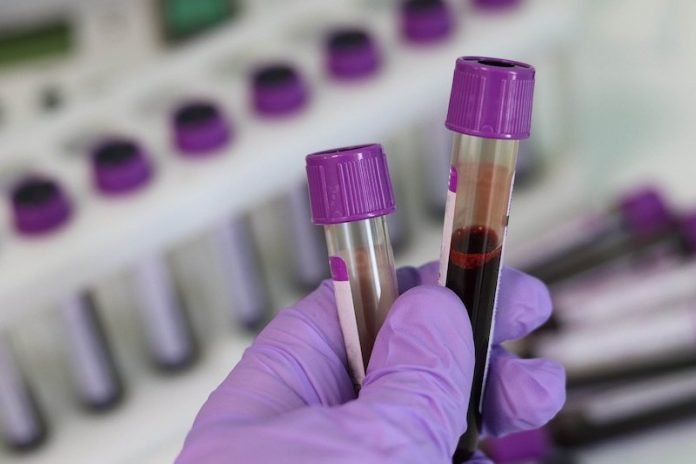
Scientists from the University of Oxford found a cheap and simple blood test for cancer has shown promise in early tests.
The test is non-specific — it can be used to detect the presence of a wide range of cancer types — and provides doctors with quick and reliable information on whether it has metastasized (spread) throughout the patient’s body.
The research is published in the journal Clinical Cancer Research and was conducted by Dr. James Larkin et al.
In the study, the team worked with samples harvested from 300 patients that were showing non-specific cancer symptoms, including fatigue and weight loss.
They assessed whether their test could tell apart patients with a range of solid tumors from those who were cancer-free.
The team found the test correctly detected the disease in 19 out of every 20 patients with cancer. Apart from this, the test identified the metastatic phase of the disease with an overall accuracy of 94%.
This is the first method to be developed that can determine metastatic cancer from a simple blood test without previous knowledge of the type of cancer the patient is suffering from.
Unlike many other blood tests for cancer, which look for genetic material from tumorous cells, the current test relies on a technique called NMR metabolomics.
This involves the use of magnetic fields and radio waves to measure metabolite levels in the patient’s blood.
Patients with localized cancer, metastatic cancer, and healthy individuals all have different metabolite profiles in their blood.
Raw data from the test is then run through an algorithm that distinguishes between these states and offers a diagnosis.
The researchers hope that their test can help doctors detect and assess cancer much more quickly and cheaply than ever before.
Although the test itself cannot accurately pinpoint the particular type of cancer in question, it still is a very powerful tool in determining who needs further tests, and who’s in the clear.
Early detection of cancer improves a patient’s chances of a successful outcome.
Being rapid and cheap to administer, this test could help improve the overall rate of successful cancer treatments, especially in patients who only show non-specific symptoms (for whom a diagnosis generally takes longer).
For now, the test is still in its early testing stages. Further research with larger cohorts of patients will be needed to give us a better and more reliable understanding of it, its capabilities, and its limitations.
If you care about cancer, please read studies about the benefits of garlic for fighting cancer, and this nutrient is essential for preventing cancer.
For more information about cancer, please see recent studies about vegetable oil linked to the spread of cancer, and this drug for depression may help stop cancer growth.
Copyright © 2022 Knowridge Science Report. All rights reserved.



